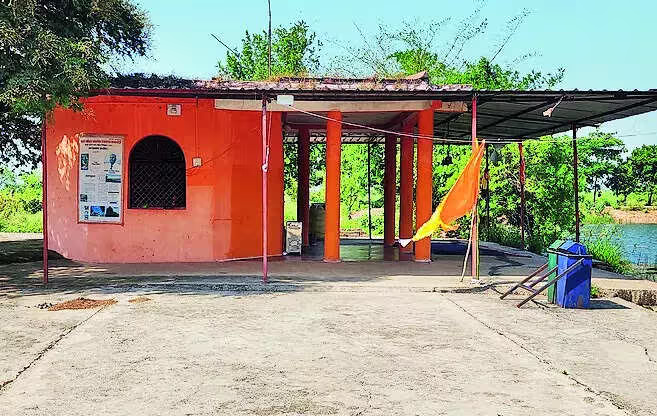A Madhya Pradesh village where Ravan is revered as a deity
- October 1, 2025
- 0

In the heart of Madhya Pradesh lies a village that stands apart from the rest of India in its cultural traditions. While most of the country views Ravan as a symbol of evil and burns his effigy on Dussehra, the residents of Rawan village near Bhopal revere him as their protector and spiritual guide. For them, Ravan is not a villain but their *gram devta* (village deity), honored through rituals, prayers, and celebrations that have been preserved for centuries.
Rawan village carries a name that directly reflects its devotion to the figure often portrayed as the antagonist in the Ramayana. Unlike other regions where his downfall is commemorated with bonfires and effigies, here his memory is celebrated with reverence. The villagers believe their identity and traditions are deeply tied to him, making their practices unique in India’s cultural landscape.
One of the most distinctive aspects of worship in this community is the recitation of the ‘Ravan Chalisa.’ Much like devotional hymns dedicated to other deities, this prayer is sung collectively by villagers who see it as an expression of loyalty and respect. Alongside these recitations, they perform *aartis*—rituals involving lamps and offerings—directed toward Ravan’s image or symbolic presence. These practices highlight how devotion can take different forms across regions while still being rooted in faith.
While Dussehra across India is synonymous with fireworks and the burning of towering effigies symbolizing good triumphing over evil, Rawan village marks the festival in an entirely different way. Residents organize grand feasts and elaborate pujas dedicated to Ravan. For them, watching his effigy burn would be painful rather than celebratory. Instead, they gather together to honor him with food offerings, prayers, and community meals that reinforce their sense of unity and pride in tradition.
The customs followed by this village are not recent innovations but practices passed down through generations. Oral histories suggest that for centuries, families here have considered themselves bound by devotion to Ravan. This continuity has preserved their rituals despite changing times and external influences. The villagers see themselves as custodians of a legacy that distinguishes them from surrounding communities while strengthening their collective identity.
For many outside observers, worshipping Ravan may seem unusual given his portrayal in epic literature. However, for the people of Rawan village, it represents pride in an alternative narrative—one where he is remembered for wisdom, strength, and protection rather than solely for conflict with Ram. Their devotion underscores how diverse interpretations of mythology can shape local traditions across India’s vast cultural spectrum.
The story of Rawan village illustrates how faith can manifest differently even within shared religious frameworks. By honoring Ravan instead of condemning him, this community preserves a centuries-old practice that continues to define its identity today. Their celebrations during Dussehra serve as a reminder that cultural heritage often carries multiple perspectives, each deeply meaningful to those who uphold them.